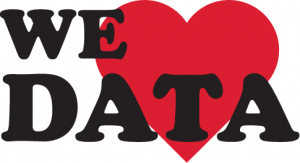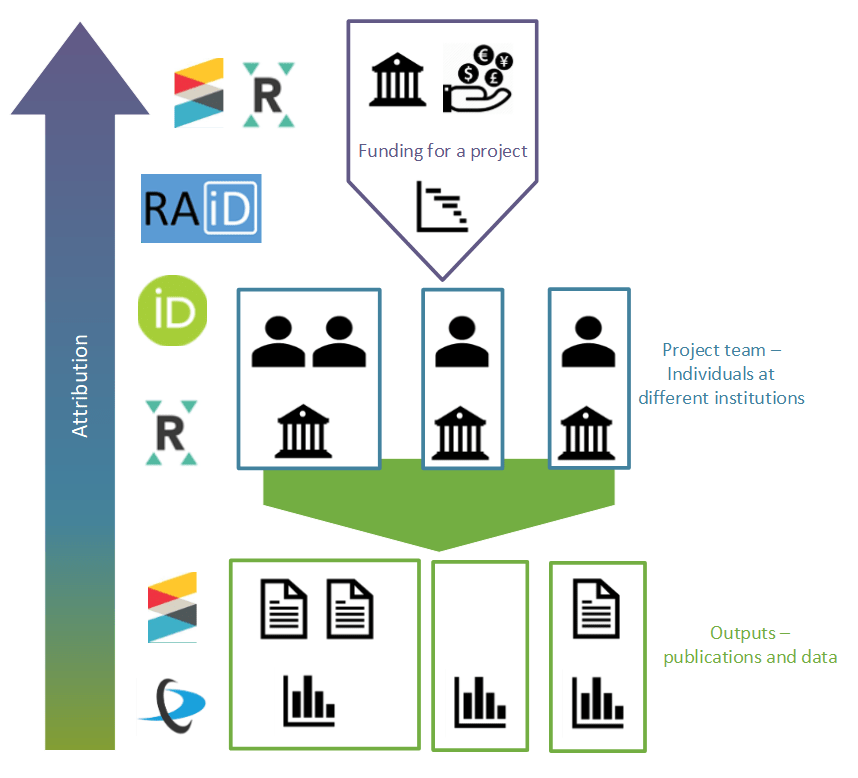
 A huge congratulations to all of the prize winners and a huge thanks to everyone that came to our celebration yesterday! It was lovely to hear from a selection of the winning projects and celebrate together. The OOSS team and the UKRN Local leads Sandy and Jessie had a lovely time networking with everyone.
A huge congratulations to all of the prize winners and a huge thanks to everyone that came to our celebration yesterday! It was lovely to hear from a selection of the winning projects and celebrate together. The OOSS team and the UKRN Local leads Sandy and Jessie had a lovely time networking with everyone.
Just in case you weren’t able to join us to hear the prize winners talk about their projects, Sandy has written short profiles of all of the winning projects below.
Category: Academic staff
Winner: Gesche Huebner and Mike Fells, BSEER, Built Environment
Gesche and Mike were nominated for the wide range of activities that they have undertaken to promote open science principles and activities in the energy research community. Among other things, they have authored a paper on improving energy research, which includes a checklist for authors, delivered teaching sessions on open, reproducible research to their department’s PhD students as well as staff at the Centre for Research Into Energy Demand Solutions, which inspired several colleagues to implement the practices, they created guidance on different open science practices aimed at energy researchers, including professionally filmed videos, as well as developed a toolkit for improving the quality, transparency, and replicability of energy research (i.e., TReQ), which they presented at multiple conferences. Gesche and Mike also regularly publish pre-analysis plans of their own research, make data and code openly available when possible, publish preprints, and use standard reporting guidelines.
Honourable mention: Henrik Singmann, Brain Sciences
Henrik was nominated for their consistent and impactful contribution to the development of free and open-source software packages, mostly for the statistical programming language R. The most popular software tool he developed is afex, which provides a user-friendly interface for estimating one of the most commonly used statistical methods, analysis of variance (ANOVA). afex, first released in 2012 and actively maintained since, has been cited over 1800 times. afex is also integrated into other open-source software tools, such as JASP and JAMOVI, as well as teaching materials. With Quentin Gronau, Henrik also developed bridgesampling, a package for principled hypothesis testing in a Bayesian statistical framework. Since its first release in 2017, bridgesampling has already been cited over 270 times. Other examples of packages for which they are the lead developer or key contributor are acss, which calculates the algorithmic complexity for short strings, MPTinR and MPTmultiverse, as well as rtdists and (together with their PhD student Kendal Foster) fddm. Further promoting the adoption of open-source software, Henrik also provides statistics consultation sessions at his department and uses open-source software for teaching the Master’s level statistics course.
Honourable mention: Smita Salunke, School of Pharmacy
Smita is recognised for their role in the development of the The Safety and Toxicity of Excipients for Paediatrics (STEP) database, an open-access resource compiling comprehensive toxicity information of excipients. The database was established in partnership with European and the United States Paediatric Formulation Initiative. To create the database, numerous researchers shared their data. To date, STEP has circa 3000 registered users across 44 countries and 6 continents. The STEP database has also been recognised as a Research Excellence Framework (REF) 2021 impact case study. Additionally, the European Medicines Agency frequently refer to the database in their communications; the Chinese Centre for Drug Evaluation have also cited the database in their recent guidelines. Furthermore, the Bill and Melinda Gates Foundation have provided funds to support a further 10 excipients for inclusion in STEP. The development and evaluation of the STEP database have been documented in three open-access research papers. Last but not least, the database has been integrated into teaching materials, especially in paediatric pharmacy and pharmaceutical sciences.
Category: Professional Services staff
Winner: Miguel Xochicale, Engineering Sciences and Mathematical & Physical Sciences
Miguel hosted the “Open-source software for surgical technologies” workshop at the 2023 Hamlyn symposium on Medical Robotics, a half-day session that brought together experts from software engineering in medical imagining, academics specialising in surgical data science, and researchers at the forefront of surgical technology development. During the workshop, speakers discussed the utilisation of cutting-edge hardware; fast prototyping and validation of new algorithms; maintaining fragmented source code for heterogenous systems; developing high performance of medical image computing and visualisation in the operating room; and benchmarks of data quality and data privacy. Miguel subsequently convened a panel discussion, underscoring the pressing need of additional open-source guidelines and platforms that ensure that open-source software libraries are not only sustainable but also receive long-term support and are seamlessly translatable to clinic settings. Miguel made recording of the talks and presentations, along with a work-in-progress white paper that is curated by them, and links to forums for inviting others to join their community available on Github.
Honourable mention: Marcus Pedersen, PHS
The Global Business School for Health (GSBH) introduced changes to its teaching style, notably, a flipped classroom. Marcus taught academics at their department how to use several mostly freely available learning technologies, such as student-created podcasts, Mentimeter, or Microsoft Sway, to create an interactive flipped classroom. Marcus further collected feedback from students documenting their learning journey and experiences with flipped teaching to evaluate the use of the tools. Those insights have been presented in a book chapter (Betts, T. & Oprandi, P. (Eds.). (2022). 100 Ideas for Active Learning. OpenPress @ University of Sussex) and in talks for UCL MBA and Master’s students as well as at various conferences. The Association of Learning Technology also awarded Marcus the ELESIG Scholar Scheme 23/24 to continue their research.
Category: Students
Winner: Seán Kavanagh, Chemistry
Séan was nominated for his noteworthy contribution to developing user-friendly open-source software for the computational chemistry/physics research community. They have developed several codes during their PhD, such as doped, ShakeNBreak and vaspup2.0 for which they are the lead developer, as well as PyTASER and easyunfold for which they are a co-lead developer. Séan not only focuses on efficient implementation but also on user-friendliness along with comprehensive documentation and tutorials. They have produced comprehensive video walkthroughs of the codes and the associated theories, amassing over 20,000 views on YouTube and SpeakerDeck. It is important to note that software development is not the primary goal of Séan’s PhD research (which focuses on characterizing solar cell materials), and so their dedication to top-quality open-source software development is truly commendable. Additionally, Séan has consistently shared the data of all his publications and actively encourages open-access practices in his collaborations/mentorship roles, having assisted others in making their data available online and building functionality in their codes to save outputs in transferable and interoperable formats for data.
Honourable mention: Julie Fabre, Department of Neuromuscular Diseases
Julie is recognized for developing the open-source toolbox bombcell, that automatically assesses large amounts of data that are collected simultaneously from hundreds of neurons (i.e., groups of spikes). This tool considerably reduces labour per experiment and enables long-term neuron recording, which was previously intractable. As bombcell has been released under the open-source copyleft GNU General Public License 3, all future derived work will also be free and open source. Bombcell has already been used in another open-source toolbox with the same licence, UnitMatch. The toolbox’s code is extensively documented, and Julie adopted the Open Neurophysiology Environment, a standardised data format that enables quick understanding and loading of data files. In 2022, Julie presented bombcell in a free online-course. This course was attended by over 180 people, and the recorded video has since been viewed over 800 times online. Bombcell is currently regularly used in a dozen labs in Europe and the United States. It has already been used in two peer-reviewed publications, and in two manuscripts that are being submitted for publication with more studies underway.
Honourable mention: Maxime Beau, Division of Medicine
Maxime is recognized for leading the development of NeuroPyxels, the first open-source library to analyze Neuropixels data in Python. NeuroPyxels, hosted on a GitHub public repository and licensed under the GNU general public license, is actively used across several neuroscience labs in Europe and the United States (18 users have already forked the repository). Furthermore, NeuroPyxels relies on a widely accepted neural data format; this built-in compatibility with community standards ensures that users can easily borrow parts of NeuroPyxels and seamlessly integrate them with their application. NeuroPyxels has been a great teaching medium in several summer schools. Maxime has been a teaching assistant at the “Paris Spring School of Imaging and Electrophysiology” for three years, the FENS course “Interacting with Neural Circuits” at Champalimaud for two years, and the UCL Neuropixels course for three years where NeuroPyxels has been an invaluable tool to get students started with analysing neural data in Python.
Honourable mention: Yukun Zhou, Centre for Medical Image Computing
Yukun was nominated for developing open-source software for analysing images of the retina. The algorithm, termed AutoMorph, consists of an entire pipeline from image quality assessment to image segmentation to feature extraction in tabular form. A strength of AutoMorph is that it was developed using openly available data and so its underlying code can be easily reproduced and audited by other research groups.Although only published 1 year ago, AutoMorph has already been used by research groups from four continents and led to three new collaborations with Yukun’s research group at UCL. Moreover, AutoMorph has been run on the entire retinal picture dataset in the UK Biobank study with the features soon being made available for the global research community. Yukun has been complimented on the ease with which any researcher can immediately download the AutoMorph tools and deploy on their own datasets. Moreover, the availability of AutoMorph has encouraged other research groups, who are conducting similar work, to make their own proprietary systems openly available.
Category: Open resources, publishing, and textbooks
Winner: Talia Isaacs, IOE, UCL’s Faculty of Education and Society
Talia is recognized for their diverse and continuous contributions to open access publishing. As Co-Editor of the journal Language Testing, they spearheaded SAGE’s CRediT pilot scheme, requiring standardized author contribution statements; they approved and supported Special Issue Editors’ piloting of transparent review for a special issue on “Open science in Language Testing”, encouraged authors to submit pre-prints, and championed open science in Editor workshops and podcasts. Additionally, in 2016, Multilingual Matters published Talia’s edited volume as their first open access monograph. Talia also discussed benefits of open access book publication in the publisher’s blog. As a result, the publisher launched an open access funding model, matching funding for at least one open access book a year. Further showcasing their dedication to open science, Talia archived the first corpus of patient informed consent documents for clinical trials on UK Data Service and UCL’s research repository, and delivered a plenary on “reducing research waste” at the British Association for Applied Linguistics event. They have also advocated for the adoption of registered reports at various speaking events, Editorial Board presentation, in a forthcoming article, editorial, and social media campaign.
Honourable mention: Michael Heinrich and Banaz Jalil, School of Pharmacy
Banaz and Michael were nominated for co-leading the development of the ConPhyMP-Guidelines. Ethnopharmacology is a flourishing field of medical/pharmaceutical research. However, results are often non-reproducible. The ConPhyMP-Guidelines are a new tool that defines how to report the chemical characteristics of medicinal plant extracts used in clinical, pharmacological, and toxicological research. The paper in which the guidelines are presented is widely used (1613 downloads / 8,621 views since Sept 2022). An online tool, launched in August 2023 and accessible via the Society for Medicinal Plant and Natural Product Research (GA) website, facilitates the completion of the checklist. Specifically, the tool guides the researchers in selecting the most relevant checklists for conducting and reporting research accurately and completely.
Honourable mention: Talya Greene, Brain Sciences
Talya is recognized for leading the creation of a toolkit that enables traumatic stress researchers to move toward more FAIR (Findable, Accessible, Interoperable and Reusable) data practices. This project is part of the FAIR theme within the Global Collaboration on Traumatic Stress. Two main milestones have so far been achieved: 1) In collaboration with Bryce Hruska, Talya has collated existing resources that are relevant to the traumatic stress research community to learn about and improve their FAIR data practices. 2) Talya also collaborated with Nancy Kassam-Adams to conduct an international survey with traumatic stress researchers about their attitudes and practices regarding FAIR data in order to identify barriers and facilitators of data sharing and reuse. The study findings have been accepted for publication in the European Journal of Psychotraumatology. Talya has also presented the FAIR toolkit and the findings of the survey at international conferences (e.g., the International Society for Traumatic Stress Studies annual conference, the European Society for Traumatic Stress Studies Biennial Conference).
Filed under Advocacy, Events, Open Access Week 2023, Open Science, Research Data
Tags: open access, open science, publishing, reproducibility, research data, scholarly communication, tools
No Comments »
 First, Enny van Beest and Célian Bimbard, who received an honourable mention in the Open Source Software/Analytical Tools category, shared their project UnitMatch. Designed to track neurons across extensive Neuropixel Recordings, this software accelerates the analysis of large datasets, proving a valuable resource for researchers handling high volumes of neural data.
First, Enny van Beest and Célian Bimbard, who received an honourable mention in the Open Source Software/Analytical Tools category, shared their project UnitMatch. Designed to track neurons across extensive Neuropixel Recordings, this software accelerates the analysis of large datasets, proving a valuable resource for researchers handling high volumes of neural data. Our heartfelt thanks go to UCL Press for their support, the Office for Open Science & Scholarship team for organising the awards, and Sandy Schumann and Jessie Baldwin, UKRN local network leads, for managing the submission and peer review process. Special thanks go to Paul Ayris, Head of the UCL Office for Open Science & Scholarship, and David Shanks, UCL’s Institutional Lead for Reproducibility, for their continued support of these awards.
Our heartfelt thanks go to UCL Press for their support, the Office for Open Science & Scholarship team for organising the awards, and Sandy Schumann and Jessie Baldwin, UKRN local network leads, for managing the submission and peer review process. Special thanks go to Paul Ayris, Head of the UCL Office for Open Science & Scholarship, and David Shanks, UCL’s Institutional Lead for Reproducibility, for their continued support of these awards. Close
Close













